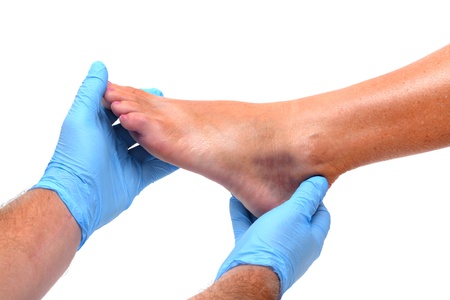Taking Steps to Avoid Amputation
If you have been diagnosed with diabetes, you probably already know that it’s a full-body illness that leads to unregulated levels of glucose in the blood stream. This can create a slew of complications from head to toe, including:
heart disease
kidney disease
blindness
skin infections
hearing impairment
Diabetes also causes nerve damage and circulation issues, which lead to two notable – and dangerous – situations in the feet: neuropathy and unhealed wounds called ulcers. It’s a terrible cycle, and one that can lead to the amputation of toes, part of the foot, or even the entire foot. Neuropathy leads to reduced sensation in the feet. This makes it hard for diabetics to feel the pain associated with a nick, cut, or other small injury and the wound goes untreated. Then, diminished circulation makes it more challenging for the body to heal the wound on its own. Infection sets in. Doctors treat the issue first with oral antibiotics but, if the wound doesn’t heal, intravenous antibiotics and hospitalization may be appropriate. If none of those approaches succeed, amputation becomes a possibility.
Other factors also increase your risk of diabetic amputation, including poorly managed blood sugar levels, obesity, and tobacco use. Everyone, diabetic or not, should eat a sensible diet and cut down or quit smoking immediately. Talk to your doctor for help.
Of course, the best thing that you can do to reduce your risk of diabetic amputation is to visit your foot doctor regularly. With years of specialized training and experience, a board-certified podiatrist like James M. McKee, DPM, FACFAS is the best-qualified medical professional to help you mitigate the possible negative effects of diabetes on your foot health. Schedule a convenient visit in our modern comfortable office on Solomons Island Road. Call the helpful Podiatry Group of Annapolis, P.A. staff at 410-224-4448 or click here to get started today.

